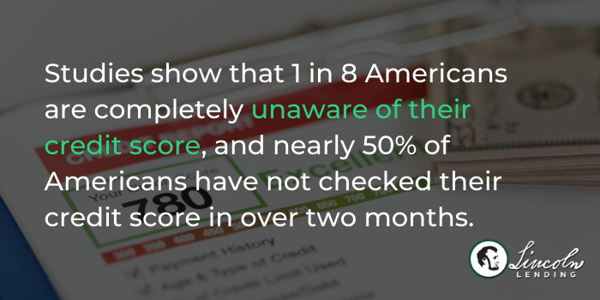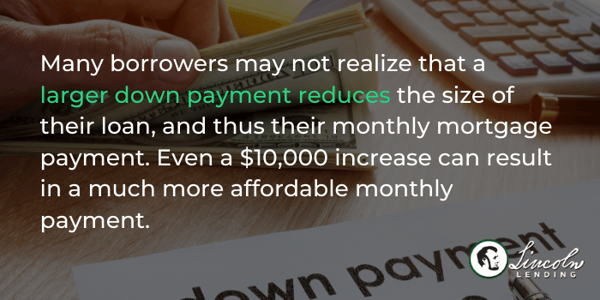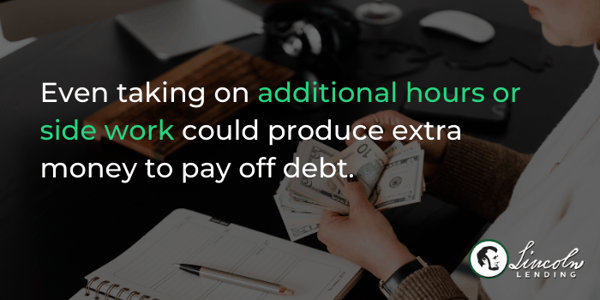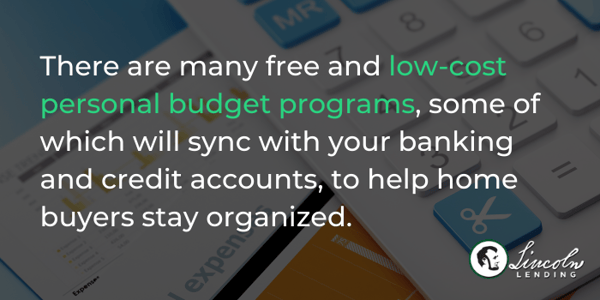Not only does homeownership help provide a sense of financial stability, but 93% of Americans say they are happier after buying a home. And that should come as no surprise. Buying a home is a chance to build equity, invest in a community, and experience the American Dream.
While some borrowers are financially prepared for this opportunity, others may struggle due to a lower credit score. However, with a little advice from a caring lender, many of these clients can still succeed.
Below are some tips and strategies to help your clients improve their home buying experience and to empower them to make a smart and rewarding home purchase.
Credit Score 101
Studies show that 1 in 8 Americans are completely unaware of their credit score, and nearly 50% of Americans have not checked their credit score in over two months.

With this in mind, it’s completely understandable that some clients are surprised to hear that their score is lackluster. In these cases, it may help to briefly explain why a credit score is important to home buying, and how it can help a borrower take control of their financial future.
Why Credit Score Matters
If a client is unaware of their credit score or its impact on their loan application, then they probably also don’t know how it’s calculated or how to improve it.
Explaining that almost any late payment, from a car loan to a cell phone bill, can be included in a credit score, and that late payments can impact the score for several years, will provide a potential homebuyer with the necessary education.
It may also provide some inspiration to know that good credit is obtainable, and not just for a chosen few. In fact, the following breakdown reflects what percentage of Americans fall into the main credit score categories:
- Poor: 300 to 579 – 16%
- Fair: 580 to 669 – 18%
- Good: 670 to 739 – 21%
- Very Good: 740 to 799 – 25%
- Excellent: 800 to 850 – 20%
Client’s with lower scores may be better off waiting until their credit score rebounds before buying a home. However, waiting to see significant improvement in a credit score may take a year or more, which may not be practical. In this case, there are strategies that the buyer can use to increase their success while they work to rebuild their credit score.
Other Than Credit Score, What Determines Loan Eligibility?
While lenders use credit scores as a predictor of a buyer’s payment reliability, it is not the only factor they consider.
If a credit score is a predictor of payment regularity, then debt-to-income ratio reflects a borrower’s ability to afford monthly payments. However, clients are likely unaware that expenses such as car payments, student loans, and rent are included, while groceries, and discretionary expenses, are typically not.
For some clients, this news may be good and bad. By not including many daily living expenses, the borrower may appear to have greater buying power. It also means that cutting optional expenses, like gym memberships, will not directly improve their ratio.
Cash to Close
While a mortgage down payment doesn’t have to be 20%, increasing the amount of cash the homebuyer brings to the table makes an immediate difference.
Many borrowers may not realize that a larger down payment reduces the size of their loan, and thus their monthly mortgage payment. Even a $10,000 increase can result in a much more affordable monthly payment.

Though that’s certainly a significant amount of money, it may be attainable for many buyers, depending on their resources.
Ways to Improve Non-Credit Score Eligibility
Even if your credit score is a work-in-progress, there are some strategies a borrower can use immediately to strengthen their eligibility. For example, paying off or down credit cards, cars loans, and student loans can improve a potential home buyer’s debt-to-income ratio.
And while we indicated that entertainment and discretionary expenses don’t directly impact debt-to-income-ratio, research shows that the average American spends over $200 a month on entertainment and almost $300 each month eating out. With a bit of diligence, the borrowers could potentially add $500 a month to debt payments, resulting in a noticeable improvement in their debt-to-income ratio.
While it might be easy to focus only on debt reduction, increasing income is also a strategy. Though it is intimidating to ask for a raise, even a 2% cost of living adjustment could make a big difference for a borrower. Even taking on additional hours or side work could produce extra money to pay off debt.

Meanwhile, let’s not forget that adding to the down payment is an effective strategy for home buying success. Buyers can add to their down payment by reducing expenses and adding to their savings, side work, assistance from family, or even using money from their retirement fund.
It’s important to note that pulling funds from different types of retirement accounts will result in different potential penalties. With this in mind, it is always wise for a borrower to talk to a tax expert regarding the implications of this strategy. However, the IRS does grant some leniency to borrowers who use retirement funds to buy their first home.
Considering the dramatic impact an additional $10,000 - $20,000 can make in the loan amount that you need and the affordability of your monthly payments, this approach may be a smart investment. But once a borrower has improved their debt-to-income ratio and down payment, there is still work to do to ensure their long-term success.
Essential Information for Mortgage Success
Undertaking a mortgage is a big responsibility. For a client without experience budgeting, it could be easy to miss a payment, creating a cycle of late fees and financial issues that could result in foreclosure.
This heartbreaking scenario will cost the borrower their home and their credit rating.
Borrowers should take an honest look at their budget and consider how much they can really afford in a monthly payment. When faced with the prospect of a beautiful home, it may be easy to promise yourself that you will never order pizza again, but that’s not realistic for most borrowers.
If affording the home means no recreation, it might be an impractical choice. Also, from furnace filters to garbage disposal, the upkeep that renters forget is now their responsibility as a homeowner.
Homeowners typically spend between 1% to 4% of the home value on annual maintenance, which should also be a consideration for the buyer’s budget. With a solid budget, these expenses are manageable. There are many free and low-cost personal budget programs, some of which will sync with your banking and credit accounts, to help home buyers stay organized.

Additionally, having mortgage payments automatically billed to a bank account can help ensure that a payment is never late. With all the money the client saves from smart choices, they may even be able to make extra payments, helping to build equity and expedite the day they own their home free and clear.
Through a little coaching and advice, even borrowers with average credit can have exceptional outcomes – that’s the difference a caring lender can make!
